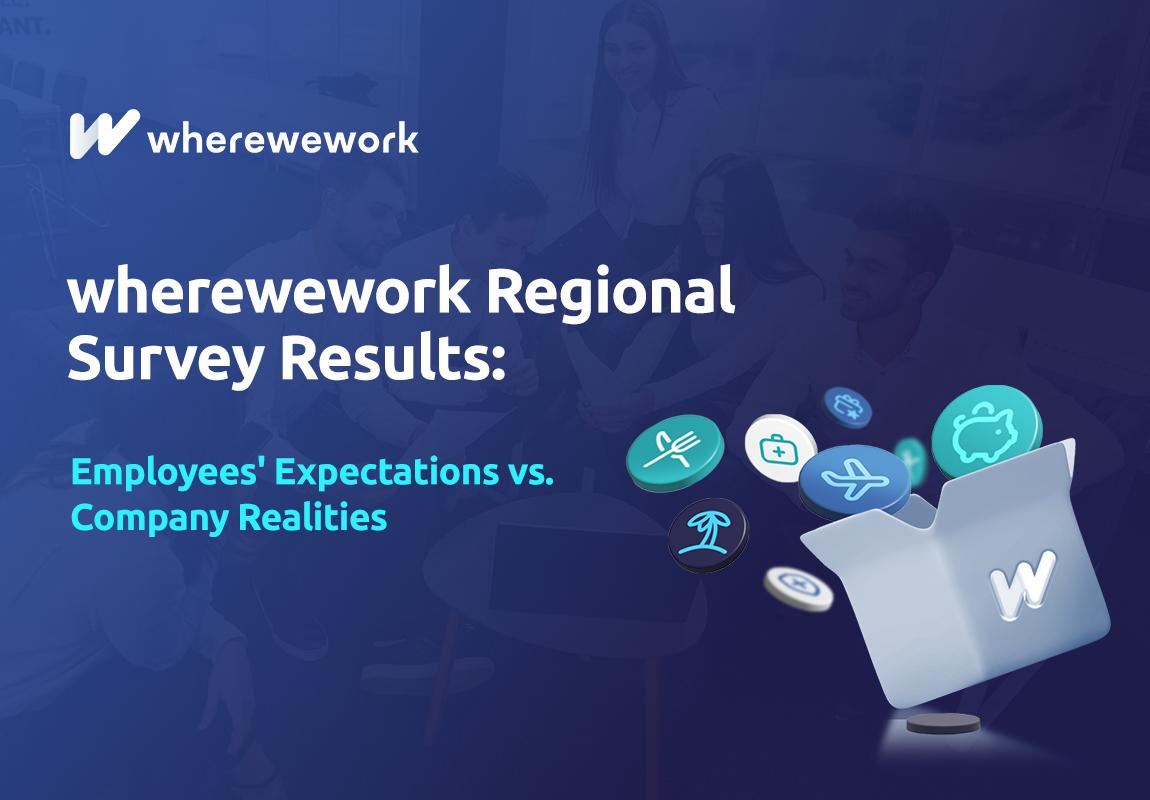Share
Results from the wherewework Regional Survey: Employees' Expectations vs. Company Reality

Nearly half of Bulgarians would change jobs for a higher salary and bonuses, wherewework regional survey shows
48% of Bulgarians would change jobs if a better opportunity arose, according to a new survey by the online platform wherewework, known in our country until recently as kaderabotim.bg. It covers five countries - Bulgaria, Greece, Romania, Moldova and Hungary and aims to promote transparency and information between employers and employees. The survey reveals key trends in the labor market, as well as expectations for salaries and preferred benefits.
“The data from Bulgaria confirms a regional trend: employees are increasingly mindful of what they receive in return for their work, seeking not only higher salaries but also meaningful and personalized benefits. At the same time, employers are becoming more aware of these expectations — nearly half of them are considering at least minor adjustments to their compensation packages. In an uncertain economic context, both sides are exercising caution. If in previous years the narrative was centered around growth and optimism, today’s key words are balance, adaptation, and open dialogue. It's clear that the relationship between employers and employees is evolving, and transparency is no longer optional — it’s essential ” says Costin Tudor, CEO of wherewework.
To gain a deeper understanding of the dynamics between employees and employers, wherewework focused its efforts on capturing the specific perceptions of employees regarding salaries and benefits. At the same time, they engaged over 990 HR professionals to enrich the survey with insights from the employer’s perspective.
Asked whether they would change jobs if a better opportunity arose, 26% of participants said they were actively looking for a new job. As the main reason for a possible change, 64% of our compatriots indicated the availability of a more attractive salary and benefits package.
In Bulgaria, however, the percentage of employees who would change jobs only if they were offered better conditions is the highest, compared to the other four countries. This answer was given by almost half of those who participated in the survey. At the same time, only 12% are those who are satisfied with their job and would not change it.
In all countries, the main reason for accepting another job offer (according to over 50% of respondents) is the higher salary and better social benefits. In Bulgaria, the second most important reason is the possibility of flexible working hours and remote work, and last - for professional development.
The answers to the question “Would you accept an offer for another job if you were offered a 20% higher salary, but only some social benefits?” are interesting. Over 40% in Bulgaria answered: “It depends on what the benefits are.” The numbers are similar in other countries, which shows the importance of a good package of social benefits that employers provide.
Regarding their current net monthly salary, 49% of respondents say they receive up to 1,000 euros, and 28.44% are in the range of 1,000 - 1,500 euros. 32% believe that a fair salary for their role and experience is between 1,500 - 2,000 euros. However, over 25% have not received any promotion in the last two years. This result is the worst in neighboring Greece - over 40% of respondents have not received a promotion in the last two years. In terms of promotions, Romania and Hungary are the leaders.
Romania and Hungary also have the highest net salaries of employees, as they also have the highest percentage of respondents who receive over 3,000 euros per month. Salaries are lowest in Moldova, while Bulgaria and Greece are in the middle with almost identical results. In both countries, half of those surveyed answered that they receive a salary below 1,000 euros. On the employers’ side, the data is the same - almost half pay salaries below this amount.
In Bulgaria, the most common additional benefits include meal vouchers (50%), private medical insurance (47%) and performance bonuses (27%). The least common benefits are access to a psychologist, additional parental financial assistance and a relaxation or games zone in the office.
Bulgarian employees, in turn, offer their employers the following improvements: additional vacation days, flexible benefits (a monthly budget that employees can use based on their personal needs: sports, healthcare, education, transportation, etc.), vouchers for holidays or culture, more flexible working hours and the ability to work from anywhere, as well as extended medical insurance (for family or additional services).
In Bulgaria, the largest number of employers responded that they are considering changes to their compensation policy, but only with minor adjustments. This is probably due to the fact that 50% of employees note that they see stagnation in salary growth in their companies. Moldovan employees see the best potential for improvement. In Hungary, the highest percentage of respondents expect even a decline in the next two years.
The survey, which provides valuable data on the state of the labor market in the region, covers 8,898 employees and 990 employers in the five countries. In Bulgaria, 1,296 employees and 168 employers were surveyed. The largest percentage of Bulgarians who participated in the survey work in the sectors "Retail (non-food)" - 14%, "IT and communications" - 10% and "Manufacturing" - 9%. 43% of them are in senior positions, and 36% are at a middle level.
In addition to the survey, wherewework also presented its new report "Great Expectations for 2025: Salaries and Benefits in Romania, Moldova, Greece, Bulgaria and Hungary. A Dual Perspective on Employee Expectations vs. Employer Offers." This resource provides an in-depth analysis of the survey results and is available for download.
The survey reflects a complex reality in which employees in the region, especially in Bulgaria feel an increasing gap between the effort they put in and the compensation they receive. Although there is dissatisfaction and high expectations regarding salaries and benefits, a shared desire for balance and adaptation is also emerging. In this context, creating an empathetic, flexible, and feedback-friendly work environment becomes key to retaining and motivating employees in the long term. The future belongs to those who understand that success is measured not only in numbers but also in the ability of organizations to align their policies with the real needs of people.
Share
What I read is worth it:
Read all the articles about
Human behaviour Motivation and vocation Survey wherewework.bg Employer branding Employee experience Workforce planningArticle written by:
Comments
0 comments

Access your account and add your comment
Human behaviour
Subscribe to the Newsletter
Read articles of interest from wherewework.bg contributors


